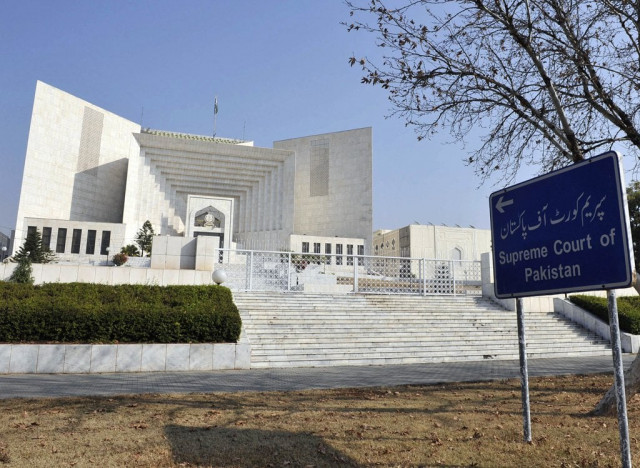SC outlines procedure for identification parades
Copy of the order sent to magistrates and courts of the country.

Supreme Court of Pakistan. PHOTO: AFP
The top court issued the order on Friday in a case challenging a trial court’s conviction of a man in a murder case who was acquitted by the bench earlier this month after spending 10 years in jail.
In 2009, a trial court sentenced Asfandyar to death for killing Adil Butt in Lahore. The penalty was later converted into life imprisonment. The convict later challenged his sentence in the apex court.
After acquitting Asfandyar, the apex court summoned the magistrate responsible for carrying out faulty identification. During the hearing, it was revealed that the magistrate was an administrative officer who was promoted to the post of a magistrate on his second day at work. He lacked any background in police laws.
“I was an administrative officer. It was my second day of work,” Kunwar Anwar Ali told the court.
Justice Khosa observed that the onus for wrongful appointment was on the state and noted that the identification parade pertained to Police Rules and not civil or criminal codes.
In a first, SC summons judicial officer for carrying out faulty identification
In the order, the top court referred to judgments authored by former judge Khalilur Rehman Ramday on identification parades. It also stressed that lining up suspects for identification was a flawed practice, the suspects should be identified separately.
The apex court asserted that the suspect’s safety should be ensured by the trial court. These mistakes should not be repeated, the SC will take serious notice if the directives are not followed, it added.
Since taking oath as the top judge on January 18, Justice Khosa, who has a strong command on criminal jurisprudence, has regularly highlighted flaws in the criminal justice system, comprising investigation, prosecution, and judiciary. He believes that false witnesses should be punished.
The chief justice raised the issue of false witnesses in the Aasia Bibi case and noted that under the law, in death penalty cases, a false witness could be sentenced to life imprisonment after conducting a summary trial.
He also lamented that both lower courts and the Lahore High Court (LHC) overlooked discrepancies in the statements of witnesses in the Aasia Bibi case.



















COMMENTS
Comments are moderated and generally will be posted if they are on-topic and not abusive.
For more information, please see our Comments FAQ